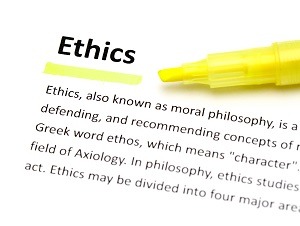Home » Ethical Considerations for Students: Navigating Academic Integrity and Responsible Behaviour

As students, it’s essential to understand and practice ethical behavior in all aspects of your academic journey. Ethics involves making responsible and morally sound decisions, maintaining integrity, and adhering to ethical principles in your studies, interactions with peers and faculty, and overall conduct. Here are some key ethical considerations for students to keep in mind:
Academic Integrity: Academic integrity is the foundation of ethical behavior in education. It means being honest and taking responsibility for your academic work. This includes avoiding plagiarism, properly citing sources, not cheating or engaging in academic dishonesty, and submitting your own original work. Upholding academic integrity is crucial in maintaining your own credibility, respecting the work of others, and fostering a fair academic environment.
Respect for Others: Respect for others is a fundamental ethical principle in all aspects of life, including academia. Treat your classmates, faculty, and staff with respect, regardless of differences in opinions, backgrounds, or beliefs. Engage in constructive and respectful discussions, avoid derogatory language, and be open to diverse perspectives. Foster an inclusive and welcoming environment that values diversity and promotes mutual respect.
Responsible Use of Resources: As a student, you have access to various resources, such as libraries, online databases, research materials, and university facilities. Use these resources responsibly and legally, adhering to copyright laws, licensing agreements, and university policies. Do not engage in unauthorized use, distribution, or sharing of copyrighted materials or misuse university resources for personal gain.
Time Management: Managing your time effectively is not only crucial for academic success, but it’s also an ethical consideration. Proper time management allows you to complete your assignments and responsibilities without resorting to shortcuts or unethical practices, such as copying or plagiarizing work. Avoid procrastination, plan ahead, and allocate enough time for research, writing, studying, and other academic tasks.
Confidentiality and Privacy: Respect the confidentiality and privacy of others in academic settings. Do not share or disclose personal or sensitive information about your classmates, faculty, or university staff without proper authorization. Adhere to the university’s policies on data privacy, confidentiality, and information security when handling academic or research data.
Honesty and Transparency: Be honest and transparent in your academic work, interactions, and communication. Do not fabricate or falsify data, results, or information. Clearly attribute and acknowledge the work of others through proper citations and references. Be transparent about any conflicts of interest or potential biases that may impact your academic work or research.
Professionalism: Demonstrate professionalism in your academic activities, such as attending classes, participating in discussions, submitting assignments on time, and communicating with faculty and peers. Use professional and respectful language in all written and verbal communications. Dress appropriately for academic settings, follow university policies and procedures, and adhere to professional standards of conduct.
Social Responsibility: Recognize the impact of your actions on society and the environment. Engage in ethical practices that contribute to the well-being of others and the sustainability of the environment. Avoid engaging in unethical behaviors, such as plagiarism, cheating, or academic dishonesty, that undermine the integrity of education and devalue the achievements of others.
By practicing ethical behavior in your academic journey, you uphold the values of integrity, responsibility, respect, and professionalism. Ethical considerations are critical in fostering a fair, inclusive, and responsible academic environment that promotes learning, growth, and success for all students. Embrace these ethical principles as you navigate your academic pursuits and strive to become an ethical and responsible student.
From
School of Commerce & Management
April 14, 2023RECENT POSTS
CATEGORIES
TAGS
Agriculture Agriculture future AI Architecture artificial intelligence BA English BA Psychology BTech CSE BTech Engineering Business management career Career-Specific Education career guide Career Opportunities career option career scope Civil engineering commerce and management Computer Science Computer science engineering Data science degree education Engineering Engineering students English Literature english program Exam tips Fashion Design Fashion design course Higher Education Journalism journalism and mass communication law Law career Machine Learning MA Psychology Master degree mathematics MBA Mechanical Engineering Pharmacy Psychology Research and Development students
University Address: Nachauli, Jasana Road, Faridabad, Haryana
Toll Free: 1800-120-4613
Mobile : 8447744303 | 8447744304 | 8447744306 | 8447744309
Address: C-72, Second Floor, Shivalik, Near Malviya Nagar,
Above HDFC Bank, New Delhi 110017
Ph.No. - 011-46570515 / 45138169 / 41755703 / +91-7303152412
Jagmani Kutir, Ground Floor, Road No-1, Rajeev Nagar,
Near Darbar Marriage Hall, Patna-800024, Bihar
Contact No: 9818352069/8130120095
Mail: [email protected]
Copyrights © 1998 - 2025 Lingaya's Vidyapeeth (Deemed To Be University). All rights reserved.
It is important to note that the following email IDs and domains are fraudulent and do not belong to our university.
LV only conducts physical/online verification of any document related to examination on the following email id: